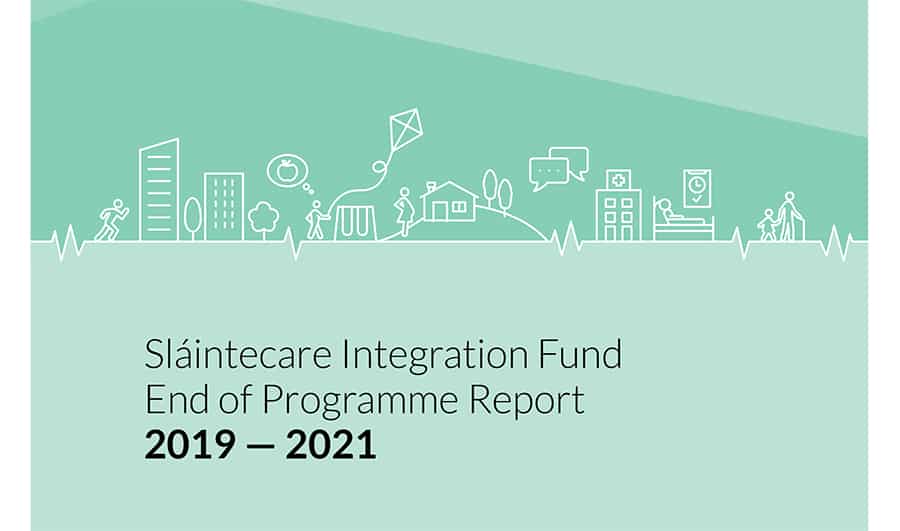Assistive tech projects in Ireland highlighted in report for improving health outcomes

The achievements of assistive technology projects that enable people to remain independent, focus on shifting care to the community, and reduce hospital admissions throughout the Republic of Ireland have been highlighted in an important report.
Remote monitoring capabilities and assistive devices have helped make a difference to the health and social system in the Republic of Ireland.
All of these assistive technology projects received funding through the Sláintecare Integration Fund, and a 2022 report is now flagging some of the success stories. Below, AT Today has detailed some of the notable and positive assistive technology projects mentioned within the report.
Background information
Launched in 2019, the Sláintecare Integration Fund provided €28 million in funding to 123 HSE and NGO sector projects in the Republic of Ireland. The Sláintecare Integration Fund formed part of the Sláintecare Action Plan from 2019 to deliver a safe, health and social care service that meets the needs of Ireland’s growing population.
The fund’s projects focused on shifting care to the community, exemplifying best practice for chronic disease management and care of older people, and empowering individuals to take charge of their own health care. Some of the projects that help support the fund’s aims incorporate assistive technologies.
The Sláintecare Integration Fund sought submissions with a focus on prevention, community care and integration of care across all health and social care settings.
Recently, Minister for Health Stephen Donnelly published the Sláintecare Integration Fund End of Programme Report. It sets out the significant achievements reported by the 123 projects funded through the Sláintecare Integration Fund.
Some of the overall project achievements include 19,000 inpatient bed days avoided, almost 64,000 patients have been seen, and a reduction in the average length of stay in hospital for people with chronic disease.
Assistive technology projects
Below are some of the most notable projects that have successfully incorporated assistive technology to improve outcomes.
Project 161 – Assistive technology mobile community service
Delivered by Central Remedial Clinic (CRC) for 15 months nationally, this project equipped one high-tech mobile support vehicle to use in outreach assessments covering all regions of the Republic of Ireland.
The mobile unit provided assistive technology and specialised seating assessment teams with the facilities to assess and support people with disabilities in their own environment, thereby saving time and long exhausting journeys for clients and families to centre-based services. This promoted independence for clients.
The nationwide service provided 590 interventions to complex clients in local environments, exceeding the target of 460. The mobile assistive technology service also helped reduce waiting list figures by 16 percent by reaching more individuals.
The project has now concluded operations and closed out.
Project 277A – ALONE BConnect; linking healthcare, social care and community care together using technology and services
Delivered by ALONE in Dublin North City and County for 16 months, this project looked to reduce emergency department (ED) admissions and delayed discharge through technology and integrated support for older people.
ALONE supports people aged 60 and above to age happily and securely at home. ALONE’s BConnect links healthcare, social care and community care together using technology and services.
The organisation provides innovative support services that use technology to support older people to better manage their own health and wellbeing, to come home from hospital quicker, and to remain living independently at home.
As part of the fund, ALONE developed and tested a technology-enabled care (TEC) solution with 48 people against a target of 50. The technology also achieved a prevention in delayed discharge for 12 people against a target of five. Furthermore, the technology prevented an avoidable presentation to the ED for five people against a target of five.
This project will now receive recurring funding annually.
Project 263 – Agewell Programme
Delivered by Third Age Foundation across County Meath for 24 months, this programme looked to support the ageing population (vulnerable groups aged 65+) and prevent avoidable hospital admissions. The project sought to achieve this by combining peer-based social engagement and mobile technology to improve health outcomes and wellbeing among older people.
The purpose of AgeWell is to continually assess and respond to evolving health issues and appropriately escalate to the Primary Care teams (PCT) and other social and community services to prevent problems becoming a crisis.
AgeWell companions use a mobile phone-based health screening tool to capture health, wellbeing and related information about clients. The system processes the information using referral algorithms to generate suggested actions for the care coordination team to explore with the client.
Through this technology, evolving health, social and environmental problems are identified and addressed before they escalate, and, if needed, can be linked into the appropriate treatment, in the right place, at the right time. The core aim is to enable clients to remain living in their own homes and communities for as long as possible.
3,005 20/20 health assessments were completed. This exceeded the target of 424 assessments.
Additionally, 936 triggered referrals were created from the health assessments. This exceeded the target of 100 triggered referrals.
This project will now receive recurring funding annually.

